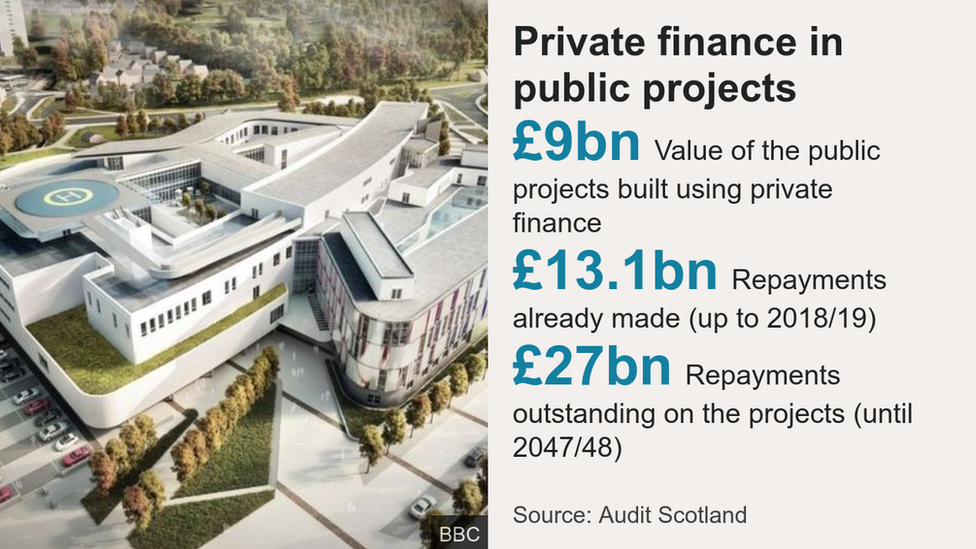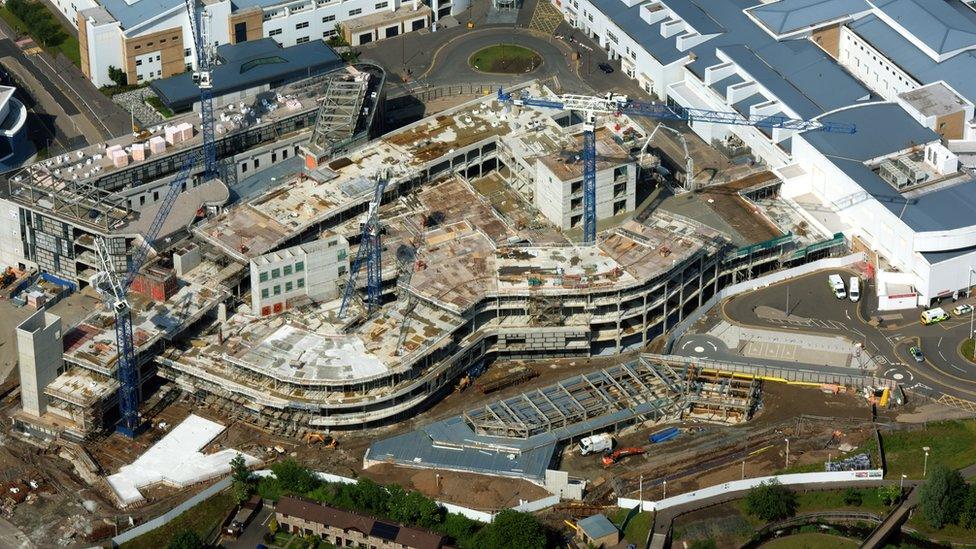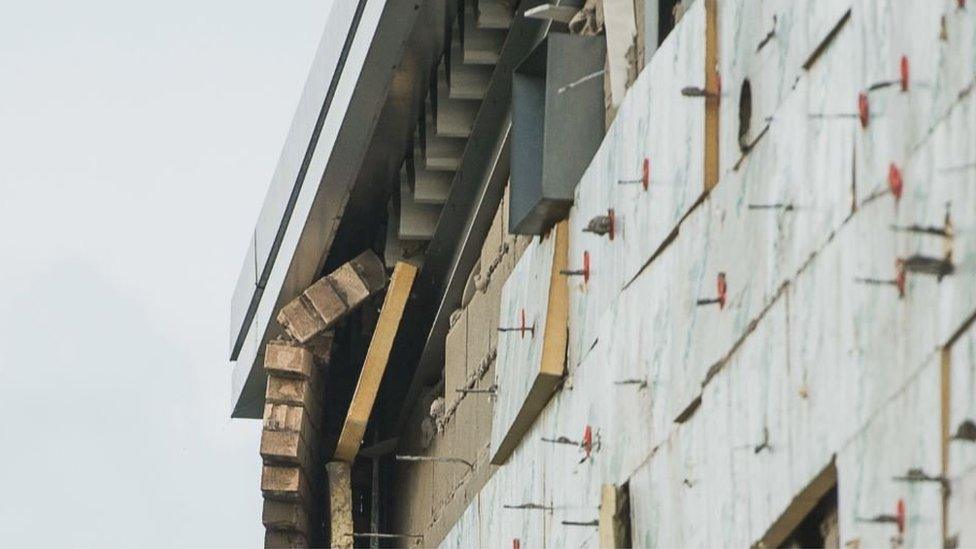Warning over cost of repaying private finance deals
- Published

The Dumfries and Galloway Royal Infirmary was built using the NPD mdoel
The cost of repaying private finance deals used to pay for new roads, schools and hospitals will have a "significant" impact on public spending, watchdogs have warned.
A new Audit Scotland report, external said more public projects have gone ahead as a result of using private money.
But auditors warned "private finance comes at a cost".
Audit Scotland said payments worth more than £40bn will be made for £9bn worth of public projects under contract.
These payments cover the cost of financing, building and maintaining the buildings.
The Scottish government no longer uses any of the private finance mechanisms covered by the report.
However, auditor general Caroline Gardner, said greater transparency is needed over decision-making to show projects represent value for money.
She added: "The Scottish government has accepted the costs of using these contracts to increase total infrastructure investment.
"But the impact on future budgets is significant, as is the overall amount of money that will be repaid."

The Audit Scotland report looked at the role of Private Finance Initiative (PFI), Non-Profit Distributing (NPD) and hub contracts in public sector infrastructure deals.
There are a total of 80 active projects using PFI, first introduced under John Major's Conservative government. They saw private consortiums build facilities, such as schools, in return for regular payments over as many as 30 years.
Longstanding criticism of how much private profit is made out of this funding approach saw the SNP administration introduce its own version of private financing, NPD, when it took power in 2007.
NPD was designed to cap excess private profits and there are a total of 15 schemes, such as the delayed new children's hospital in Edinburgh and the completed M8 motorway upgrade.
In addition, there are 41 hub schemes which allow for new community facilities, such as social housing or medical centres, to be built using public and private partnerships.

The Aberdeen bypass was given the green light by Scottish ministers in 2009 as an NPD project but was later reclassified as a public project after a tightening of EU rules around building programmes
Audit Scotland said the Scottish government had not been clear enough about how decisions have been taken about which projects will use private finance, or how well this approach is achieving the best balance of cost and benefits in practice.
Auditors also found:
That it was too early to establish how successful NPD has been at limiting overall private sector returns
The cost of using private finance for NPD complied with official guidance but "may have been underestimated"
Any surpluses from NPD will only be paid near to the end of the 25-year deals, and after all other costs were met
The Scottish government is not monitoring whether private finance firms in NPD deals are selling on their debts, making it "more difficult to know how effective its policy of profit capping has been in limiting overall private sector returns"
Local councils have been left with limited options other than to construct new and replacement public buildings through private finance deals

NHS Lothian is paying around £1.4m in monthly NPD repayments for a new children's hospital in Edinburgh which is currently unusable after issues with its ventilation were discovered last year
Research commissioned by The Guardian and The Ferret in 2018, external showed many private finance projects to build schools, hospitals and roads have links to offshore tax havens and the majority of profits go to companies located outside of Scotland,
This is similar to the PFI model where scores of schools built in Scotland are at least partially owned by offshore investment funds.
A Scottish government spokesman said: "As the report recognises, NPD and private financing through hub companies has enabled £3.3bn of additional investment in Scotland's infrastructure that would not otherwise have been possible, given budgetary constraints placed on the Scottish government by the UK government."
He said infrastructure investment can unlock economic potential, the government publishes explanations of its financial decisions and that it will reflect on the report.
The Scottish government is developing a new Mutual Investment Model (MIM) of private financing and Audit Scotland has called for more detail on this.
- Published15 April 2016
- Published18 October 2017

- Published22 August 2016

- Published18 January 2018
